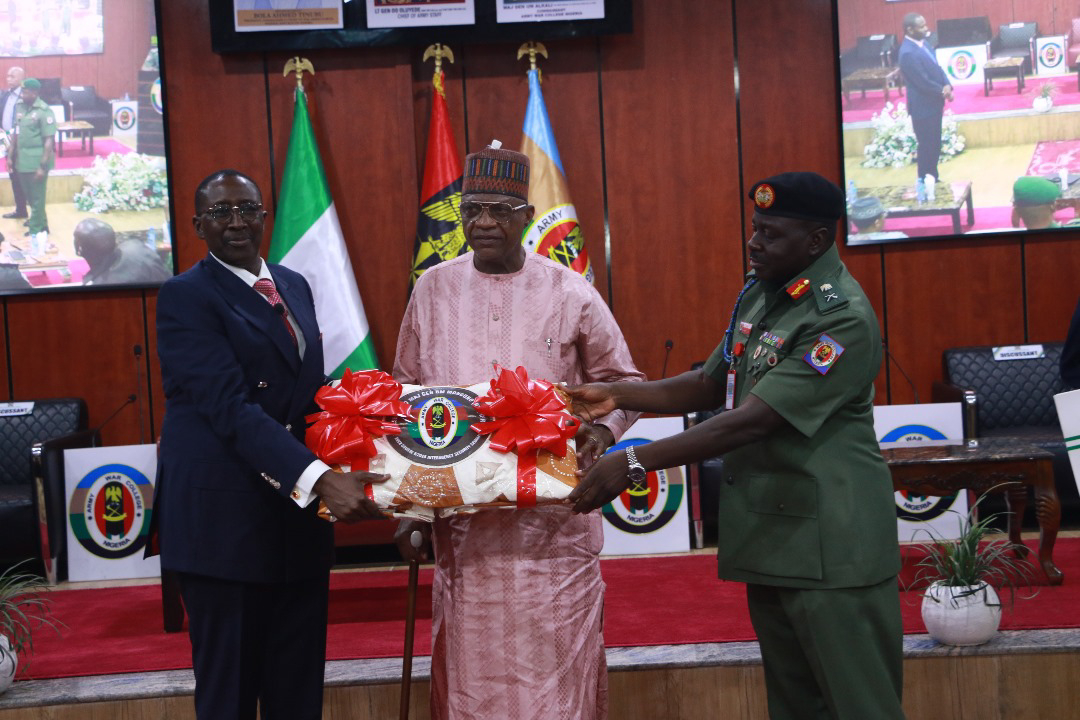Gaidam Advocates Real-Time Intelligence Sharing to Tackle Evolving Security Threats
Gaidam Advocates Real-Time Intelligence Sharing to Tackle Evolving Security Threats
The Minister of Police Affairs, Senator Ibrahim Gaidam, has emphasized the urgent need for real-time intelligence sharing among Nigeria’s security agencies to enhance proactive responses to the country’s complex and evolving security challenges.
Gaidam made the call during an Interagency Security Seminar organized by the Army War College Nigeria (AWCN) Course 9/2025, held at the TYB Auditorium, Wu Bassey Barracks, Asokoro, Abuja. The seminar, themed "Multiplicity of Operations in Nigeria’s Contemporary Security Landscape: Optimizing Multi-Agency Efforts for Effective Threat Response," brought together top-level stakeholders across the country’s security architecture.
Speaking as the Special Guest of Honour, Senator Gaidam stated that effective multi-agency collaboration is no longer optional but a necessity in today’s security environment.
“To optimize multi-agency efforts, we must bridge critical gaps in our security system,” he said. “Institutionalizing cross-agency training and scenario-based drills will enhance operational interoperability and foster mutual trust.”
He further emphasized the need to adopt modern technologies, including advanced surveillance systems, artificial intelligence, and digital forensics, to improve operational efficiency.
Addressing the nation’s current security realities, Gaidam said Nigeria faces a multifaceted threat landscape ranging from insurgency and terrorism in the North-East, to banditry and farmer-herder clashes in the North-West and North-Central, to separatist agitations in the South-East, and organized crime in the South-South and South-West.
“These threats are exacerbated by economic inequality, governance gaps, and increasingly sophisticated criminal networks exploiting technology, porous borders, and ungoverned spaces,” the minister noted.
Gaidam advocated for a holistic, whole-of-government and whole-of-society approach to national security. He called on security agencies to strengthen synergies, particularly between the Nigeria Police Force and sister agencies such as the Nigerian Army, Navy, Air Force, Department of State Services (DSS), Nigeria Security and Civil Defence Corps (NSCDC), Immigration Service, and Customs Service.
He also underscored the vital role of the civilian population in ensuring security, calling for enhanced community policing initiatives to rebuild public trust and improve grassroots intelligence gathering.
“The traditional approach to security is no longer sufficient. We need a more integrated framework that unites military, intelligence, law enforcement, and civil society actors,” he added.
In his lecture, retired Major General Babagana Mohammed Monguno echoed the minister's position, stressing that military operations, though impactful, must be complemented by comprehensive strategies to address the root causes of insecurity.
He noted that despite ongoing operations across all geopolitical zones, security threats remain persistent and disruptive, underscoring the need for coordinated, multi-dimensional responses.
The seminar highlighted the importance of collaboration, technology, and inclusive strategies as the cornerstones of Nigeria’s evolving security framework.








No comments